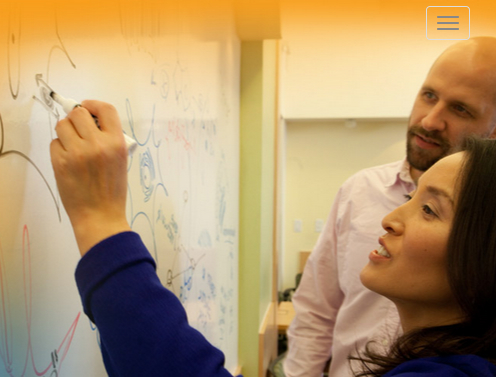Biotech Startup Yumanity Therapeutics Launched To Develop New Therapies for Neurodegenerative Diseases Caused by Protein Misfolding
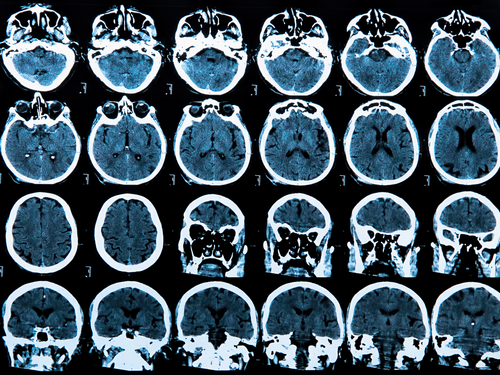
 Biotech industry veteran Tony Coles, M.D. has launched a new startup — Cambridge, Massachusetts-based Yumanity Therapeutics. Founded in December 2014, the new company’s central focus is on drug discovery for diseases caused by a DNA anomaly called “protein misfolding.”
Biotech industry veteran Tony Coles, M.D. has launched a new startup — Cambridge, Massachusetts-based Yumanity Therapeutics. Founded in December 2014, the new company’s central focus is on drug discovery for diseases caused by a DNA anomaly called “protein misfolding.”
Yumanity Therapeutics’ founders include by Dr. Coles, who is chairman and chief executive officer, and scientific founder Susan Lindquist, Ph.D., an award-winning pioneer and expert on the foundational science of protein folding, Yumanity’s corporate mission is to identify and then develop disease-modifying therapies  designed to address several illnesses, the medical needs of which are currently being critically unmet. The company’s initial focus is trained on neurodegenerative diseases, including Alzheimer’s and Parkinson’s diseases and amyotrophic lateral sclerosis (ALS).
designed to address several illnesses, the medical needs of which are currently being critically unmet. The company’s initial focus is trained on neurodegenerative diseases, including Alzheimer’s and Parkinson’s diseases and amyotrophic lateral sclerosis (ALS).
Yumanity’s proprietary platforms have already identified a potential new target for Parkinson’s treatment, and the scientific team will commence work immediately on taking its new chemical lead series for this illness forward, and on identifying additional compounds for address of Alzheimer’s and ALS.
Yumanity’s founders note that brain and central nervous system diseases represent one of the most daunting global healthcare challenges and greatest medical priorities due to the devastating personal and economic consequences they wreak on patients, caregivers and society in general. An estimated 50 million people worldwide suffer from neurodegenerative diseases, according to the July 2014 UBS Alzheimer’s Report, Industry Research, and the Parkinson’s Disease Foundation, and there are no currently approved disease-modifying therapies available. With life expectancy steadily increasing due to modern therapeutic intervention advances, numbers of patients afflicted with these disorders is expected to double every 20 years going forward, with currently estimated treatment costs at $650 billion and expected to exceed $1 trillion by 2030.
Leveraging the company’s three integrated platforms, Yumanity’s innovative approach to drug discovery and development is concentrated reversing cellular phenotypes and disease pathologies attributable to protein misfolding.
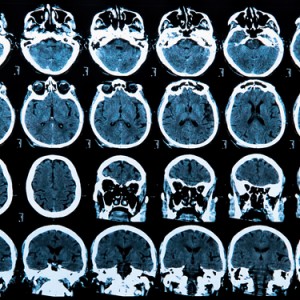 “I am thrilled and inspired to be at the forefront of innovation in an area of real, global medical need,” says Dr. Coles in a release. “We believe the time is now to translate the remarkable advances in protein folding science achieved by Sue and her colleagues into a drug discovery engine that we believe can have a rapid and transformational impact on neurodegenerative diseases. While no cures exist and currently available therapies only address the symptoms of these devastating illnesses, our unique approach overcomes the fundamental limitations of todays target-based drug discovery by exploiting the power of phenotypic screening in yeast and human stem cell-derived neurons. This approach is the Yumanity advantage and enables us to identify potential new therapies to modify the cause of these diseases at the cellular level.”
“I am thrilled and inspired to be at the forefront of innovation in an area of real, global medical need,” says Dr. Coles in a release. “We believe the time is now to translate the remarkable advances in protein folding science achieved by Sue and her colleagues into a drug discovery engine that we believe can have a rapid and transformational impact on neurodegenerative diseases. While no cures exist and currently available therapies only address the symptoms of these devastating illnesses, our unique approach overcomes the fundamental limitations of todays target-based drug discovery by exploiting the power of phenotypic screening in yeast and human stem cell-derived neurons. This approach is the Yumanity advantage and enables us to identify potential new therapies to modify the cause of these diseases at the cellular level.”
Protein Misfolding and Yumanity’s Integrated Discovery Platforms
The foundational code of proteins — DNA — is initially decoded into long, linear strands of amino acids. Simple strands must fold precisely into highly distinct shapes in order to form functional proteins. When folding dysfunctions, consequences can be catastrophic, disrupting basic cellular processes. Yumanity notes that most neurodegenerative disease including Alzheimer’s, Parkinson’s, and ALS are caused by protein misfolding. Unhappily, research and discovery efforts to discover new drugs have been thwarted by inadequate tools to study protein folding defects that cause these diseases.
Dr. Lindquist and colleagues have developed yeast strains that serve as living test tubes in which to study these disorders, and how protein folding contributes to them. They have succeeded in reproducing many of Parkinson’s disease’s biological effects in yeast cells, and on development of drugs to prevent and treat the disease.
Yumanity’s three discovery platforms are:
• An array of proprietary, ultra-high-throughput phenotype screening (uHTS) platforms which model various protein misfolding pathologies in yeast and compounds to correct these pathologies are discovered;
• A human neuronal platform, in which neurons produced from the stem cells of patients with disease-causing genetic mutations are used to validate the molecules discovered in yeast;
• A drug-target identification platform that exploits the power of yeast genetics and protein network analyses to elucidate mechanisms of action for pathology correcting molecules as new chemical entities are discovered.
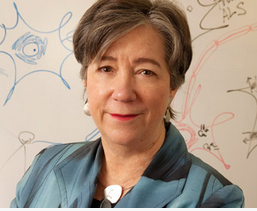 These three integrated platforms, discovered in Dr. Lindquist’s lab at Massachusetts Institute of Technology’s (MIT) Whitehead Institute for Biomedical Research, of which she is a member and former director, have been described in multiple, peer-reviewed publications. Dr, Lindquist is also an investigator with the Howard Hughes Medical Institute (HHMI), an associate member of the Broad Institute of MIT and Harvard, and an associate member of the David H. Koch Institute for Integrative Cancer Research at MIT, and was also an HHMI investigator from 1988 to 2001 at the University of Chicago.
These three integrated platforms, discovered in Dr. Lindquist’s lab at Massachusetts Institute of Technology’s (MIT) Whitehead Institute for Biomedical Research, of which she is a member and former director, have been described in multiple, peer-reviewed publications. Dr, Lindquist is also an investigator with the Howard Hughes Medical Institute (HHMI), an associate member of the Broad Institute of MIT and Harvard, and an associate member of the David H. Koch Institute for Integrative Cancer Research at MIT, and was also an HHMI investigator from 1988 to 2001 at the University of Chicago.
Dr. Lindquist’s seminal work on heat-shock protein 90 (Hsp90), a chaperone protein that assists other proteins in the process of folding, has facilitated new understanding of evolution, including emergence of phenomena like cancer and microbial drug resistance. She was co-founder of FoldRx (subsequently acquired by Pfizer), a startup that developed the first-in-class drug tafamidis which is now approved for treating hereditary peripheral amyloidosis — a lesser-known neurological disease consequential to protein misfolding errors.
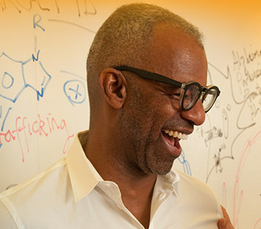 Founding chairman and CEO Dr. Coles brings more than 20 years of experience in drug discovery and development to Yumanity Prior to his roles at Yumanity, He was previously chairman and CEO of Onyx Pharmaceuticals, Inc., another startup that was acquired by Amgen in late 2013 for $10.5 billion. Under Dr. Coles’ leadership, Onyx developed two new cancer medicines and established an international presence in the industry. Prior to joining Onyx in 2008, Dr. Coles had been president, CEO, and a board member and director of NPS Pharmaceuticals, Inc.
Founding chairman and CEO Dr. Coles brings more than 20 years of experience in drug discovery and development to Yumanity Prior to his roles at Yumanity, He was previously chairman and CEO of Onyx Pharmaceuticals, Inc., another startup that was acquired by Amgen in late 2013 for $10.5 billion. Under Dr. Coles’ leadership, Onyx developed two new cancer medicines and established an international presence in the industry. Prior to joining Onyx in 2008, Dr. Coles had been president, CEO, and a board member and director of NPS Pharmaceuticals, Inc.
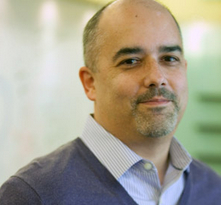 Yumanity’s chief scientific officer is Kenneth Rhodes, Ph.D., who will direct scientific work on the company’s integrated platforms as well as on its drug discovery research. Previously vice president of neurology discovery at Biogen Idec, an organization focused on discovery and early development of protein and small molecule drugs in neurology therapeutics Dr. Rhodes brings to Yumanity more than 20 years’ biopharmaceutical R&D experience in a career focused and committed to discovery of new neurodegenerative disease therapies. Several drug candidates identified by Dr. Rhodes and his research teams for treatment of neurodegenerative disease are currently in clinical development.
Yumanity’s chief scientific officer is Kenneth Rhodes, Ph.D., who will direct scientific work on the company’s integrated platforms as well as on its drug discovery research. Previously vice president of neurology discovery at Biogen Idec, an organization focused on discovery and early development of protein and small molecule drugs in neurology therapeutics Dr. Rhodes brings to Yumanity more than 20 years’ biopharmaceutical R&D experience in a career focused and committed to discovery of new neurodegenerative disease therapies. Several drug candidates identified by Dr. Rhodes and his research teams for treatment of neurodegenerative disease are currently in clinical development.
Yumanity’s three integrated platforms were developed in close collaboration with the company’s scientific co-founders, Vikram Khurana, M.D., Ph.D., Chee-yeun Chung, Ph.D. and Daniel Tardiff, Ph.D., who cooperatively contributed to pioneering integration of yeast and human neuronal systems, and the coupling of genetic and protein-network analyses in order to accelerate identification of new drug leads and their molecular targets. The three scientists will join Yumanity from Massachusetts General Hospital and the Whitehead Institute to form the company’s founding research team.
 Dr. Khurana spearheaded Yumanity’s human patient iPS platform, and as an attending neurologist at Massachusetts General Hospital, he has an extensive background of experience in research and clinical management of neurodegenerative disorders. His past research efforts have included utilization of patient-derived stem cells in the development of novel neurodegenerative disease therapies — the ultimate aim being tailoring of these therapies specifically to individual patients.
Dr. Khurana spearheaded Yumanity’s human patient iPS platform, and as an attending neurologist at Massachusetts General Hospital, he has an extensive background of experience in research and clinical management of neurodegenerative disorders. His past research efforts have included utilization of patient-derived stem cells in the development of novel neurodegenerative disease therapies — the ultimate aim being tailoring of these therapies specifically to individual patients.
 Chee-Yeun Chung, Ph.D. is a member of Yumanity’s core research team and a scientific co-founder who has contributed to the company’s respective neuronal and yeast discovery platforms. Prior to joining Yumanity, Dr Chung was an instructor at Harvard Medical School, and subsequently she joined the Whitehead Institute’s Lindquist lab as a senior research scientist. She has developed assays for the identification of abnormalities in rat and human iPSc-based cortical neuron culture system, thereby revealing critical mechanisms found in neurodegenerative diseases.
Chee-Yeun Chung, Ph.D. is a member of Yumanity’s core research team and a scientific co-founder who has contributed to the company’s respective neuronal and yeast discovery platforms. Prior to joining Yumanity, Dr Chung was an instructor at Harvard Medical School, and subsequently she joined the Whitehead Institute’s Lindquist lab as a senior research scientist. She has developed assays for the identification of abnormalities in rat and human iPSc-based cortical neuron culture system, thereby revealing critical mechanisms found in neurodegenerative diseases.
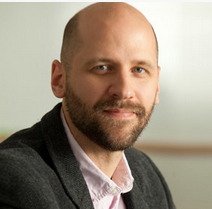 Daniel Tardiff, Ph.D. is Yumanity’s Associate Director, Yeast Phenotypic Screening who enhanced the company’s yeast biology platform and advanced its use for target identification. Prior to joining Yumanity, Dr. Tardiff was also a Lindquist lab member at the Whitehead Institute, where his work was instrumental in the analysis of toxicity associated with alpha-synuclein expression. His genetic and chemical screens of yeast expressing alpha-synuclein have shed light on basic cellular processes that get disrupted by alpha-synuclein, as well as compounds that alleviate alpha-synuclein toxicity.
Daniel Tardiff, Ph.D. is Yumanity’s Associate Director, Yeast Phenotypic Screening who enhanced the company’s yeast biology platform and advanced its use for target identification. Prior to joining Yumanity, Dr. Tardiff was also a Lindquist lab member at the Whitehead Institute, where his work was instrumental in the analysis of toxicity associated with alpha-synuclein expression. His genetic and chemical screens of yeast expressing alpha-synuclein have shed light on basic cellular processes that get disrupted by alpha-synuclein, as well as compounds that alleviate alpha-synuclein toxicity.
For more information, visit:
https://yumanity.com/
Sources:
Yumanity Inc.
Whitehead Institute for Biomedical Research
Howard Hughes Medical Institute (HHMI)
Image Credits:
Yumanity Inc.
Howard Hughes Medical Institute (HHMI)




